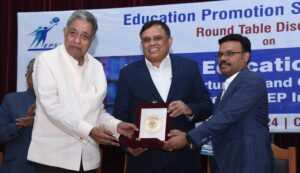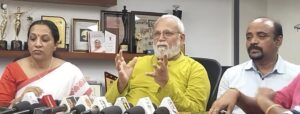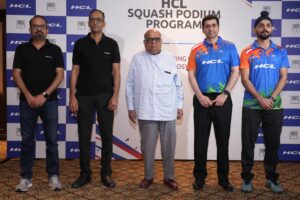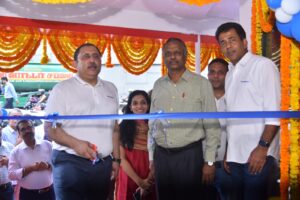ICNWWorking Women‘s Forum (India) WWFCelebrating Global Victory Twice
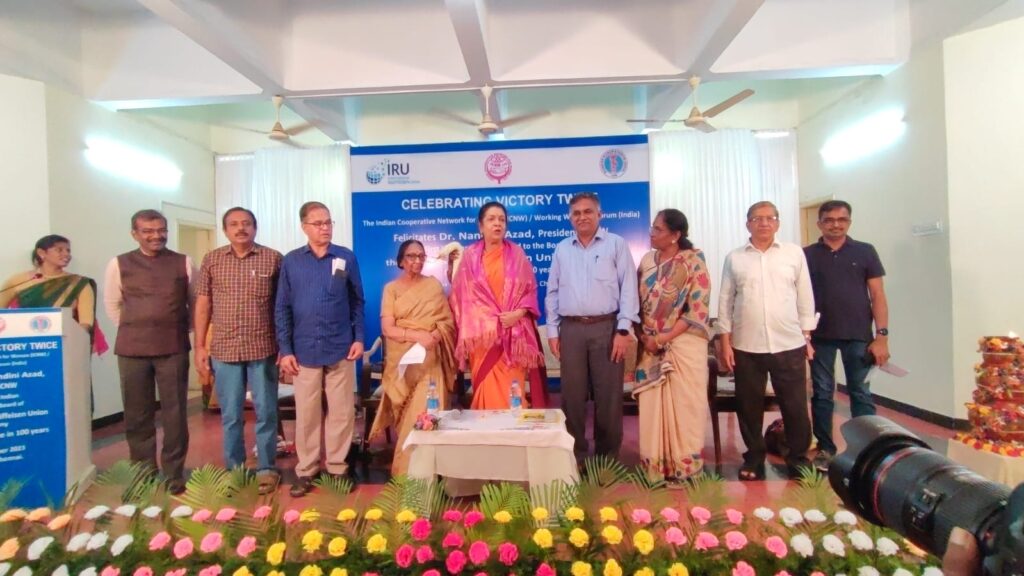
Speech of Dr.Nandini AzadPresident of
Indian Cooperative Network for Women ICNWWorking Women‘s Forum (India) WWF
Celebrating Global Victory Twice
IRU – Internationale Raiffeisen Union
The Working Women’s Forum (WWF) & the Indian Cooperative Network for Women (ICNW) have 14 branches across Tamil Nadu, Karnataka, Andhra Pradesh & Telangana, reaching 6,25,000 poor women members.
ICNW provides low-interest small loans to micro-entrepreneurs in 282 occupations, transforming women from survival to development.
The gender & equity model aligns with SDGs, emphasizing the transformation of women into co-operators and leaders.
Financial Inclusion for Sustainable Development:
ICNW’s innovative financial inclusion program empowers women with credit, training, mobility, and market opportunities, preventing gender-based violence.
Women in ICNW-WWF save, become bankable, invest, accumulate assets, and assume leadership roles, building a network connecting marginalized communities.
Raiffeisen Model and Historical Connection:
The Raiffeisen model influenced Madras city (Chennai) in the late 19th century, leading to the emergence of rural finance in India.
ICNW’s cooperative approach replaces moneylenders, aligning with global cooperative movements.
National and International Acclaim:
Prominent figures like Queen Mother Juliana of the Netherlands, Hillary Clinton, and Indian leaders admire ICNW’s unique grassroots women’s empowerment.
Latest Achievements:
ICNW’s commitment to women’s empowerment through capacity building has yielded remarkable achievements. The empowerment training provided by ICNW has not only enhanced women’s leadership qualities but has also positioned them as influential decision-makers in households and communities. Through gender awareness training, women are equipped with the knowledge of their rights, enabling them to emerge as local leaders.
A shining example of this transformative impact is Padmavathy, who, once in extreme poverty, is now a landowner thanks to ICNW’s financial inclusive strategies. Padmavathy’s journey includes diversifying into farming, adopting organic techniques, and expanding her market influence. With ICNW’s support, women farmers, like Padmavathy, gain bargaining power, diversify income sources, and enhance family food security. Importantly, these efforts not only strengthen resilience against climate change through financing but also promote biodiversity practices, recognizing and leveraging the valuable indigenous knowledge of women in tackling climate challenges. The Padmavathy case study exemplifies the tangible and empowering outcomes resulting from ICNW’s holistic approach to women’s empowerment.
Creating Supply Chains During Pandemic:
In response to the challenges posed by the global pandemic in 2020, WWF-ICNW took proactive measures by launching an Asia-Pacific digital financial literacy program during the lockdown. This initiative aimed to educate staff and members across the region on the use of digital financial platforms such as G-Pay, Phone Pe, and NEFT, providing training in regional languages. A pivotal aspect of this program was the “Training of Trainers” workshop, where 65 women leaders were equipped to impart digital financial literacy to underserved women. This strategic move has revolutionized ICNW’s operations, as participants embraced digital skills and adopted fair growth strategies for their businesses.
One success story is that of Ms. Sasikala, a 33-year-old entrepreneur from Central Chennai. Through the digital literacy training provided by WWF-ICNW and financial assistance, Sasikala initiated a successful online business during the pandemic. Starting with an initial loan of Rs. 5,000, she purchased various clothing items from a wholesaler and retailed them through six loan cycles. Leveraging her digital skills, Sasikala used her mobile phone to take online orders for household requirements and ensured doorstep delivery. Grateful for the support from WWF-ICNW, Sasikala acknowledges the organization’s president for the unwavering assistance provided even amidst the challenges of the pandemic.
During the lockdown, ICNW demonstrated its commitment to supporting nearly 120,000 women members who faced difficulties in travel and accessing loans. The organization provided continuous financial assistance, pandemic preparedness guidance, and essential supplies. Remarkably members, displaying exceptional resilience and commitment by never defaulting on their obligations, were honored with the “Corona Micro-Entrepreneur Warrior’s Award.” This recognition, bestowed upon them for their outstanding efforts, garnered attention from dignitaries and the media, highlighting the impactful role of micro-entrepreneurs as essential warriors during challenging times. Today WWF-ICNW 43 years old starting as a small grassroots cooperative has reached the global tables were poor womens voices on cooperatives policy and programs they participate alongwith nearly 14 members represented.
Successful Impact & Outcomes
The outcomes achieved by ICNW through its Growth Process – Gender and Equity Model stand as a testament to the transformative power of collective action. Empowering individual, marginalized women in the informal sector, ICNW has successfully turned them into co-operators and trade unionists, significantly enhancing their collective bargaining power. By challenging societal norms and improving working conditions through cooperative models, ICNW addresses intersecting barriers of caste, class, and gender. This innovative approach has not only led to the creation of local supply chains, climate change initiatives, and digital literacy but has also infused confidence among its members, elevating their standard of living.
ICNW’s success stories, where women initially supported with minimal loans now own houses and have become successful entrepreneurs, underscore the organization’s impact. As a beacon of inspiration, ICNW demonstrates that with the right support, marginalized women can overcome challenges, contribute to society, and lead fulfilling lives, making it a global symbol of hope and empowerment.

